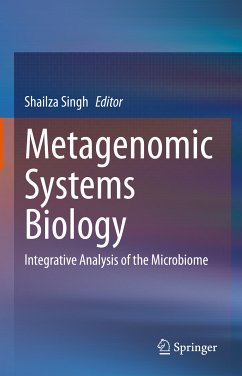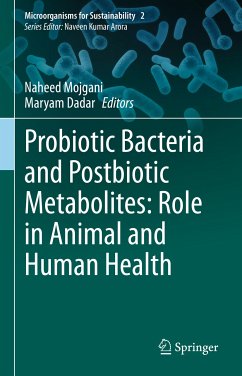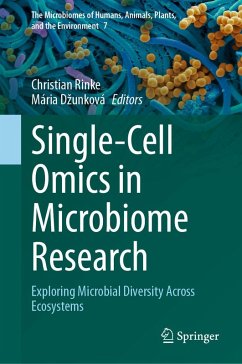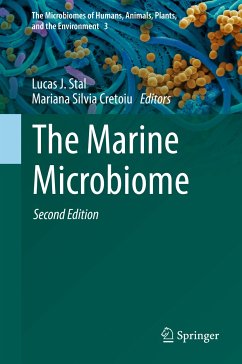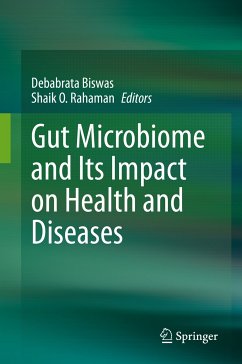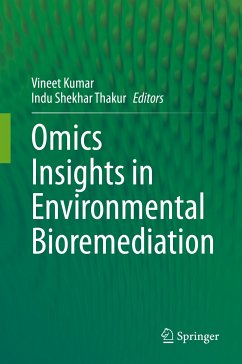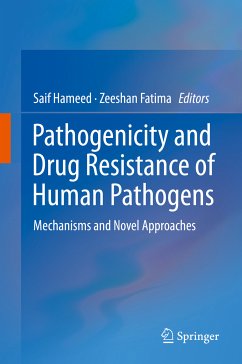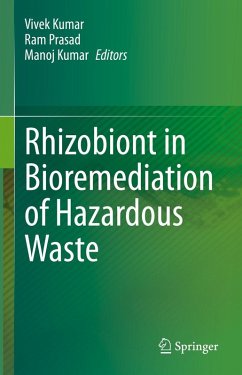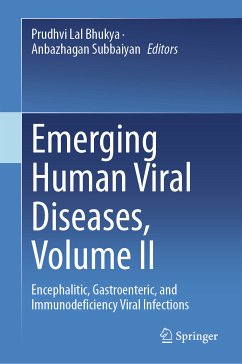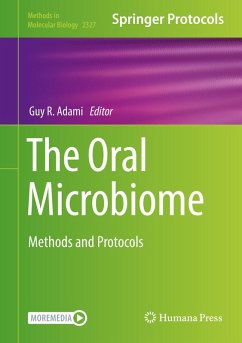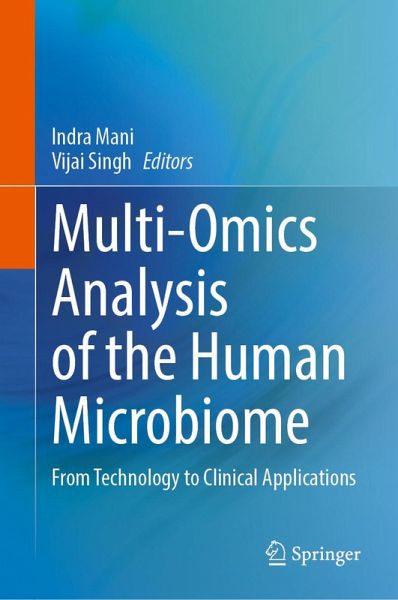
Multi-Omics Analysis of the Human Microbiome (eBook, PDF)
From Technology to Clinical Applications
Redaktion: Mani, Indra; Singh, Vijai
Versandkostenfrei!
Sofort per Download lieferbar
160,95 €
inkl. MwSt.
Weitere Ausgaben:

PAYBACK Punkte
80 °P sammeln!
This book introduces the rapidly evolving field of multi-omics in understanding the human microbiome. The book focuses on the technology used to generate multi-omics data, including advances in next-generation sequencing and other high-throughput methods. It also covers the application of artificial intelligence and machine learning algorithms to the analysis of multi-omics data, providing readers with an overview of the powerful computational tools that are driving innovation in this field. The chapter also explores the various bioinformatics databases and tools available for the analysis of ...
This book introduces the rapidly evolving field of multi-omics in understanding the human microbiome. The book focuses on the technology used to generate multi-omics data, including advances in next-generation sequencing and other high-throughput methods. It also covers the application of artificial intelligence and machine learning algorithms to the analysis of multi-omics data, providing readers with an overview of the powerful computational tools that are driving innovation in this field. The chapter also explores the various bioinformatics databases and tools available for the analysis of multi-omics data. The book also delves into the application of multi-omics technology to the study of microbial diversity, including metagenomics, metatranscriptomics, and metaproteomics. The book also explores the use of these techniques to identify and characterize microbial communities in different environments, from the gut and oral microbiome to the skin microbiome and beyond. Towards theend, it focuses on the use of multi-omics in the study of microbial consortia, including mycology and the viral microbiome. The book also explores the potential of multi-omics to identify genes of biotechnological importance, providing readers with an understanding of the role that this technology could play in advancing biotech research. Finally, the book concludes with a discussion of the clinical applications of multi-omics technology, including its potential to identify disease biomarkers and develop personalized medicine approaches. Overall, this book provides readers with a comprehensive overview of this exciting field, highlighting the potential for multi-omics to transform our understanding of the microbial world.
Dieser Download kann aus rechtlichen Gründen nur mit Rechnungsadresse in A, B, BG, CY, CZ, D, DK, EW, E, FIN, F, GR, HR, H, IRL, I, LT, L, LR, M, NL, PL, P, R, S, SLO, SK ausgeliefert werden.



